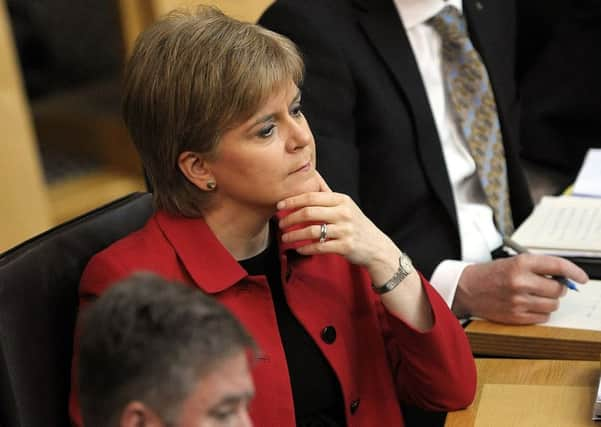Leader comment: Principle of referendum must not over-ride everything else


The phrase has become the Conservative mantra, to be repeated at every opportunity when the independence debate takes over. Which is most days, at the moment.
It’s a clever approach. It denies Nicola Sturgeon what she is asking for, and at the same time keeps alive the possibility that a referendum will be held at some time in the future, post-Brexit. Saying categorically “no” or “never” would have provoked the kind of reaction that the Prime Minister has to avoid if she wants to keep the UK together. But is “now is not the time” credible?
Advertisement
Hide AdAdvertisement
Hide AdWe said at the time of Mrs May’s original pronouncement that it is impossible to argue that the democratic will of Scotland is not being denied if the Scottish Parliament votes for a referendum. That vote has now happened, and we have not seen or heard any reason to change our mind. The Conservatives say that a second independence referendum would be “unfair to the people of Scotland” because the public does not have all the necessary information about our future relationship with Europe, or what an independent Scotland would look like.
Aside from the point that we have just lived through two referendums which were held without any guarantee over what the country – Scotland or the UK – would look like afterwards, the appeal to a sense of what is fair is best avoided. The current representation of parties in the Scottish Parliament was the choice of the public, and the vote to hold a second referendum was supported by a majority of MSPs. Decision-making doesn’t come much fairer than that.
That said, it should be added that the moral high ground remains unoccupied. Vote or no vote, a second referendum will be part of our political discourse for the next two years, but it should not be allowed to become the most important issue of debate. Unfortunately, we can see that this is exactly what is happening.
The economy, education and the NHS all require greater priority than the constitution, particularly when we are dealing with no more than speculation on that front. The Scottish Government has to ensure that the Scottish economy is in the best possible shape to handle Brexit when it comes, and this target should also be paramount if a convincing case for independence is ever going to be made.
Ms Sturgeon should recall the pledge she made upon assuming office, to be a First Minister for all of Scotland including those who did not vote for her. While we understand her desire to pursue a referendum, she – and possibly she alone – has the power to ensure that this does not become the sole focus of the Scottish Government. That is a greater power than the ability to call on an in-built majority, but requires considerable courage to exercise.